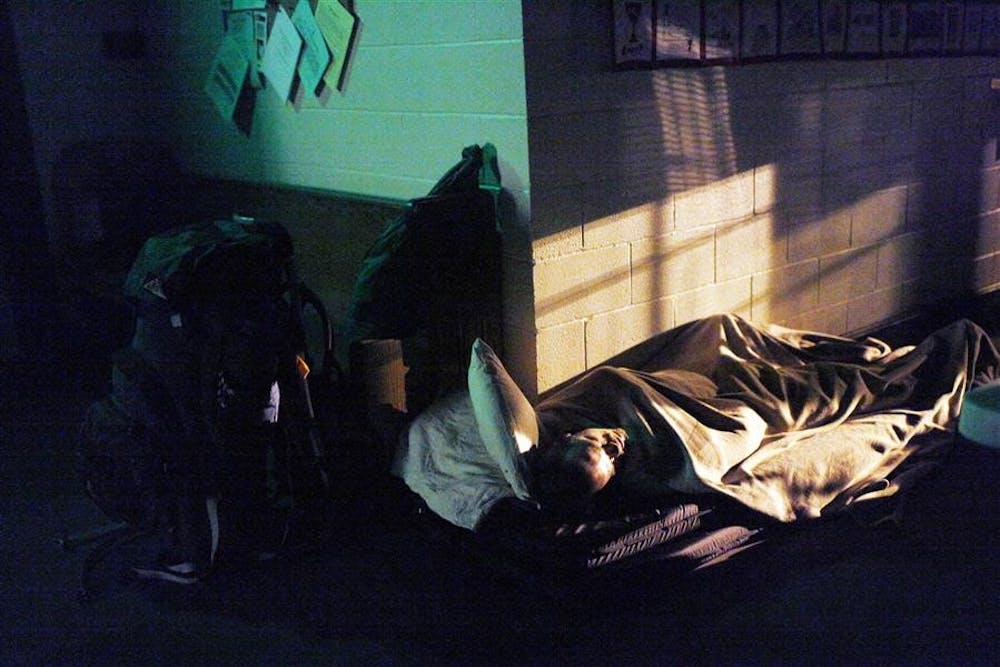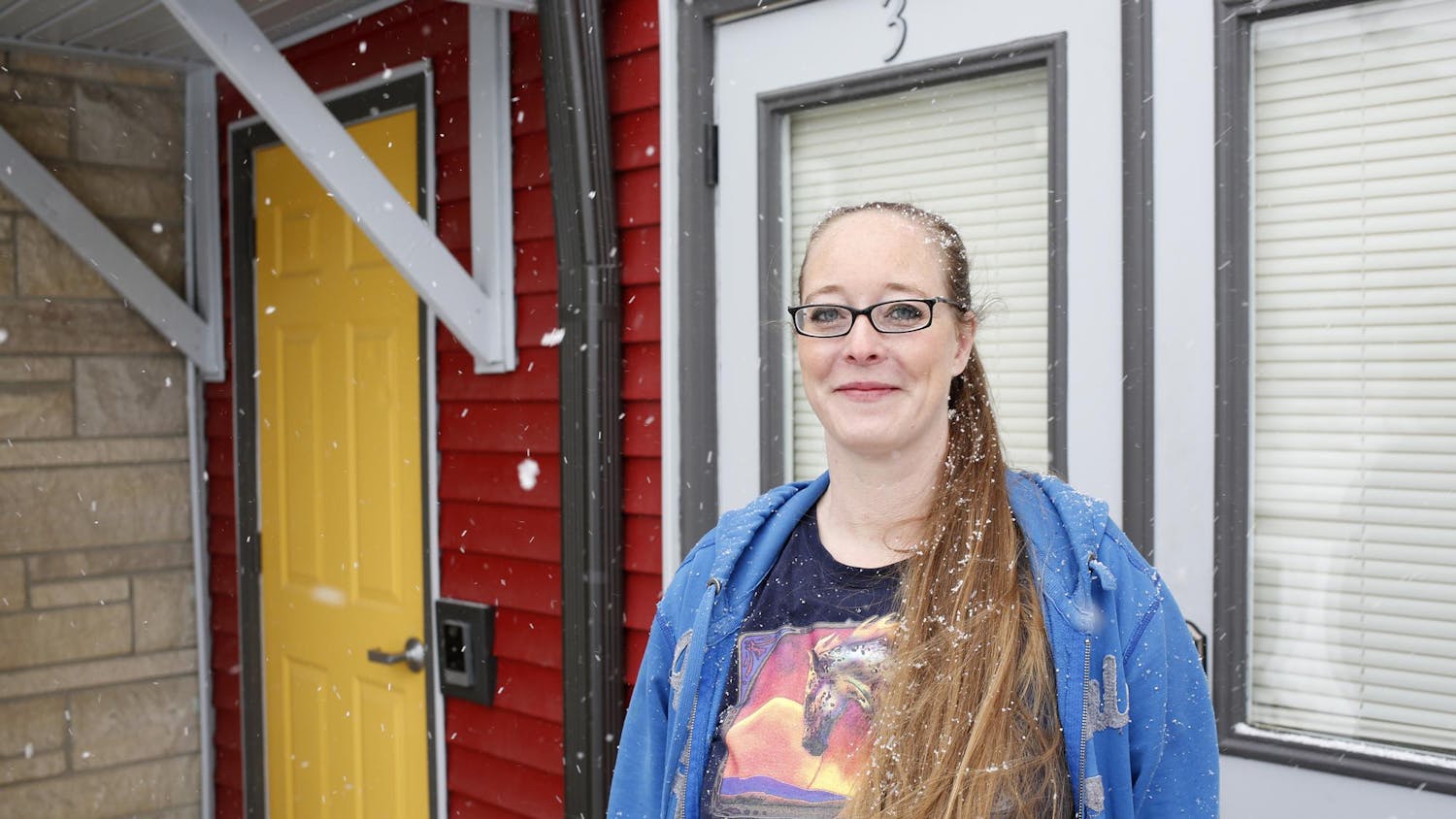When the rain started, the music didn’t stop. The two men singing, “This land is your land, this land is my land,” kept playing their banjos. But farther up the hill, where people sought shelter under a small part of the courthouse roof, the music wasn’t as loud as the rain hitting the pavement.
The night of April 1 meant the same thing for all of them — a night without a home. Interfaith Winter Shelter, the only place in town open to everyone, even those with addictions, closed forthe summer.
It was 9:30 p.m. and they had just finished protesting the shelter’s closing. Volunteers stuck around, but slowly the people spread out, knowing they had to go to the bathroom or find something to eat before they settled somewhere for
the night.
A light was on in an office cubicle visible through the half-closed blinds of a courthouse window. Angela Riley stood outside.
Protecting her bags from the rain, she placed them in the indented window frame where she sometimes slept last summer. A desk decorated with greeting cards, family pictures and a cozy desk chair sat only a wall away. She covered her bags with a trash bag to keep them dry.
“That’s how you fix a bag,” she said to Ronnie Deckard, her boyfriend. They were a couple, but on nights like this they were a team. If he went somewhere, she waited for him, guarding their bags.
He didn’t let her carry them around, either. He said they were too heavy.
They shared cigarettes and talked about where they would go if the rain got worse. Maybe under the B-Line Bridge. Maybe they could convince someone to let them sleep on his or her couch.
Around the corner, others huddled together. A man called “Pinky” read a Bible. Ever since he overdosed a couple of years ago, he doesn’t go anywhere without it.
People wore donated rain ponchos. A pregnant woman sat cross-legged in a blue poncho, her round face the only visible part of her body. She hoped she was having a boy. She already had two girls.
Pizza came, bought by the volunteers and Deckard, who contributed $6. Volunteers helped pitch a small overhead tent. Down the street at Kilroy’s Bar and Grill, music boomed. Through the windows, people conversed, laughed and drank.
Across the street at People’s Park, three people experiencing homelessness tried to gather enough money for a motel room.
It was 11 p.m. John Adams, a volunteer at Interfaith, couldn’t stand seeing people suffer in the rain. He knew he would end up opening the church, even if he got in some trouble for it.
“I’m sure I’ll hear about it later, but I’ll let them in,” he said. “People don’t get no rest in their mind like this.”
He opened First Christian Church around 12:30 a.m., but many people had tapped their resources and were staying with a relative, a volunteer or a friend of a friend. Riley and Deckard convinced volunteer Ayman Ashwaiheen’s friend to let them sleep on his couch.
But people like Ashley Howerton still had nowhere to go.
There were only three women in the women’s room that night. Normally, there are 11. Howerton thought about how almost everyone else seemed to have someone who cared enough to give them shelter. But she didn’t.
Out the window of the women’s room, the cross on the roof of First United Methodist Church glowed through the sheer curtains.
Howerton still believes in God, but said it can be easy to lose hope. She is 27 years old and has tumors in her stomach. She’s married to her high school sweetheart, Josh, who was sleeping in the men’s room.
When she thought about her daughter, she cried.
Her daughter, Shelby, has Pallister-Hall’s syndrome and six fingers on one hand. She wears a feeding tube. She’s almost 7 years old and lives with her grandmother and two brothers who are 8 and 5 years old.
Shelby’s hospital bills cost them their home, Howerton said. She was on life support for six months, pronounced dead six times.
Howerton sold her wedding ring for money. But her kids made her another one, she said, showing off the black ring made of duct tape.
She hadn’t even smoked marijuana before she was homeless. After a while, she felt like she would never overcome it. She tried meth, and within a month she was addicted — something that haunts her every day. She has been clean for three years.
Howerton’s voice shook. She sobbed. She liked company. Even at 1 a.m., she said she wasn’t tired and kept talking.
“Most of the time,” she said, “people don’t want to take the time to know your story.”
Cast aside
Interfaith Winter Shelter's tenants adapt to homelessness the first night after the shelter's closing

Get stories like this in your inbox
Subscribe





